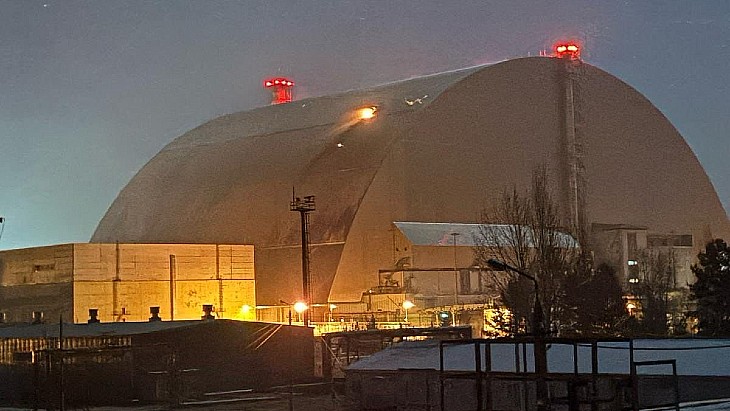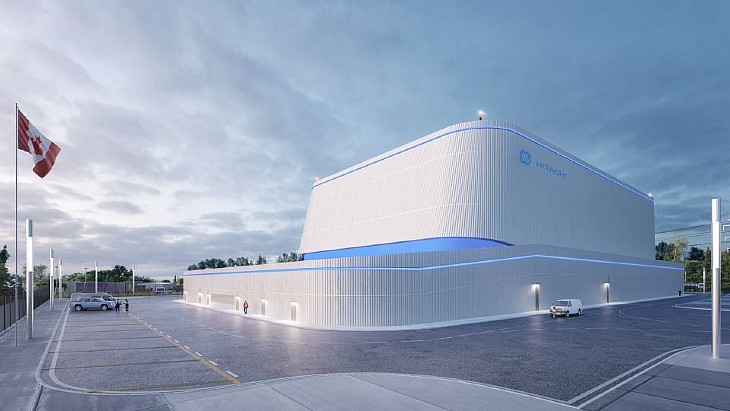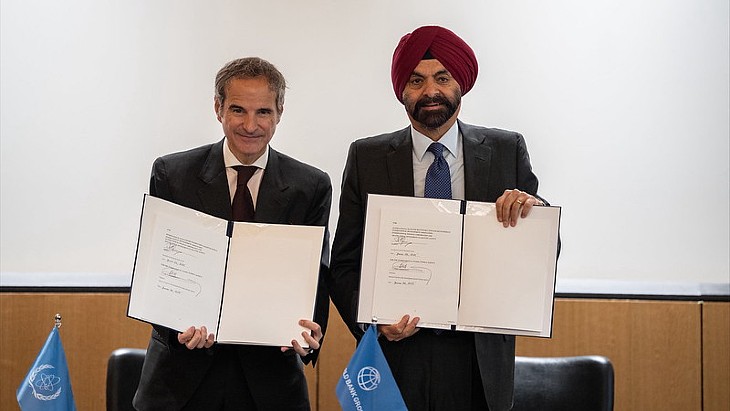Minister confirms FBR remains important to Japan
The head of Japan's Ministry of Economy, Trade and Industry (METI) has confirmed the importance of fast breeder reactor (FBR) development in Japan at a meeting of public and private sector representatives. Japanese governmental policy on FBRs - including the future of the Monju prototype fast breeder reactor - is to be finalized by the end of the year.
.jpg) |
| Monju (Image: JAEA) |
The Conference on Fast Reactor Development took place in Tokyo on 7 October. Chaired by METI Minister Hiroshige Seko, it was attended by Hirokazu Matsuno, minister of the Ministry of Education, Culture, Sports, Science and Technology (MEXT), Toshio Kodama, president of the Japan Atomic Energy Agency (JAEA), Satoru Katsuno, chairman of the Federation of Electric Power Companies, and Shunichi Miyanaga, president of Mitsubishi Heavy Industries.
The conference was established following a ministerial meeting held on 21 September, at which it was decided that representatives of METI, MEXT and JAEA, along with the country's electric power utilities and nuclear power reactor vendors, should address courses of action for fast reactor development. The conference is also tasked with undertaking a fundamental review of Monju, as the policy will specifically address the future of the reactor.
METI minister Hiroshige Seko reiterated to the conference the Japanese government’s recognition that nuclear energy is essential for Japan to maintain stable supplies of inexpensive electricity. He stressed that that the country must face the challenges of the nuclear fuel cycle "squarely".
MEXT representatives told the conference it would cost an estimated JPY540 billion ($5.24 billion) to operate Monju to the end of its licensed operating period. This is a minimum cost based on the assumption it would take eight years to restart the reactor, and that it could then be operated for another eight years, and does not include decommissioning costs.
The 280 MWe Monju FBR started up in 1994 but following sodium leakage problems operated for only 205 days until it restarted in May 2010. It has not operated since refuelling equipment fell into the reactor vessel during a refuelling outage later that year. The equipment was subsequently retrieved and replaced but the Japanese Nuclear Regulation Authority (NRA) has not yet permitted the reactor to restart. In November 2015, following concerns over equipment inspections, the NRA determined that operator JAEA was not competent to operate the reactor.
Researched and written
by World Nuclear News









..._58412.jpg)

